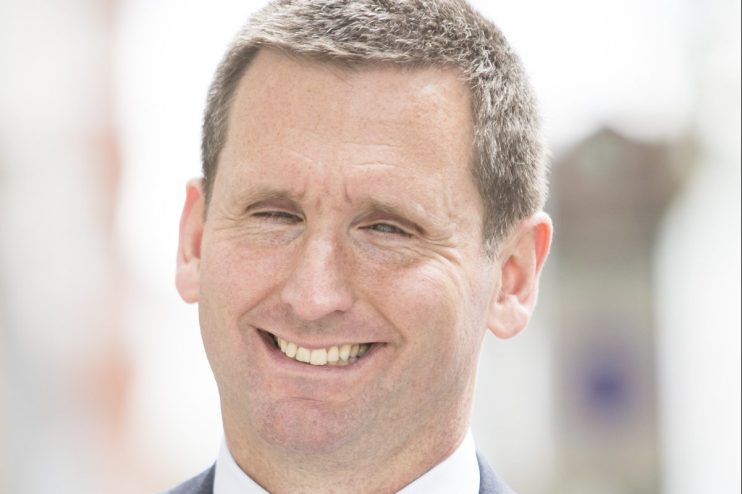Financial Services and Markets Bill is now with the House of Lords, and its potential is extraordinary

The Financial Services and Markets Bill, “the platform upon which much of the Government’s vision for financial services will be delivered”, has arrived in the House of Lords.
A substantial, second reading debate took place this week. Forty-eight of my most knowledgeable and distinguished Lords colleagues signed up to speak, raising many of the same, important, issues, covered here when I wrote about the Commons 2nd reading back in September last year.
It was a substantial debate for a substantial Bill. Undoubtedly the biggest reform of financial regulation in a generation. Consisting of 20 separate measures and more than 335 pages it covers a vast array of objectives and the means to get there. I will limit myself here to just one, key, area: financial inclusion. Regulation (and the regulator) is a vast topic that deserves its own space, and I will come back to it.
The Government has stated that financial inclusion is one of the five core aims of the bill – I believe it is the most important. I welcome the measures already included in the bill but there is much more that must be done to ensure the bill does truly deliver financial inclusion.
As I said during the debate, financial inclusion matters not just for those who find themselves on the wrong side of it but for each and every one of us. The benefits of driving financial inclusion extend far beyond the impact on individuals who cannot access basic financial services but could, potentially, mean better businesses, more cohesive communities and a society, and nation, we could all be proud of.
My enthusiasm for the many benefits of financial inclusion explain why I am pleased to see the access to cash clauses in the Bill. This effort to safeguard access to cash is important because cash still matters, and it matters materially to millions. Clause 51 and Schedule 8 would add a new requirement for the Treasury to publish a cash access strategy. It would also require the Financial Conduct Authority (FCA) to seek to ensure “reasonable” provision of cash.
I was not the only member to ask exactly what “reasonable” will mean here. I asked the Minister whether distance and cost would both be considered — and whether that distance is covered by public transport links. The Bishop of St Albans asked specifically about cash access in rural areas and Baroness Twycross insisted that “reasonable” must, mean “adequate”.
The Minister responded to these questions and concerns by stating that the Government will consider how effective industry schemes have been in ensuring reasonable, free access to cash for individuals and that extended powers to intervene to prevent bank closures would be possible. Almost 6,000 bank branches have closed since 2015, and the impact of these closures extends far beyond access to cash – I hope there will be more thought around this.
Access to cash is just one small part of this and just one aspect of a cash economy. If there is no acceptance of cash – no place to spend it – then this effort to ensure reasonable access to getting it will be increasingly pointless. I think it is incredibly important that we look at the whole question of acceptance: which businesses are included; what size they are; what line of business they are in; and business clusters.
I tabled an amendment to a previous financial services bill (now Financial Services Act 2021) which permitted cashback without a purchase. That change made it into law and evidence so far clearly demonstrates that people are taking advantage of the ability to get cashback without needing to first buy something – and that most of those transactions are for £20 or below. This shows that we are now clearly serving individuals who were massively underserved or unserved before the passage of that legislative change.
My final question on cash, was to ask the Minister whether it was time to consider cash as critical national infrastructure? Thinking beyond cash as a way of protecting and including those who are financially vulnerable, in the current, uncertain, world if there were to be a serious and sustained cyberattack on our financial systems, cash would provide a robust first line of resilience.
There is more to financial inclusion than cash. The future is inexorably digital, not least for payments. There is nothing necessarily problematic or negative about that, but that future must be inclusive for all — and the transition to that future must be similarly inclusive. The Government understood the need for an Access to Cash Review (indeed many of the measures included in this bill stem from that review) but if that Review was needed in 2018, before the pandemic accelerated the increase in digital payments and use of cash reduced by 40%, then surely, we now need an Access to Digital Payments Review.
I said I would not speak here about the regulator but one point, specifically focussed on financial inclusion, is the attempt to give the FCA a cross-cutting “must have regard” to financial inclusion duty. I added an amendment to this end to the previous bill. Colleagues in the Commons added an amendment on this during this bill’s Commons stages. As Baroness Tyler, Chair of the Financial Exclusion Select Committee, pointed out – amendments on this will be forthcoming.
In conclusion, this is the most important financial services bill in a generation. It has extraordinary potential—and is an extraordinary opportunity – to make things better. It is not inevitable, but if we get it right, we will drive economic and social good for citizens, cities, communities, and our country.
Watch the debate here.
For all the latest Lifestyle News Click Here
For the latest news and updates, follow us on Google News.

